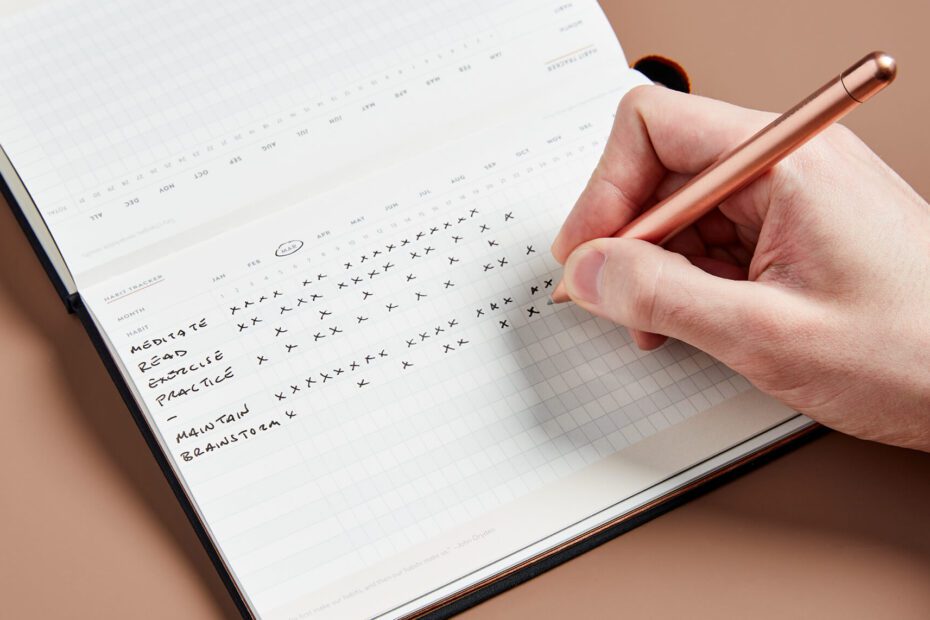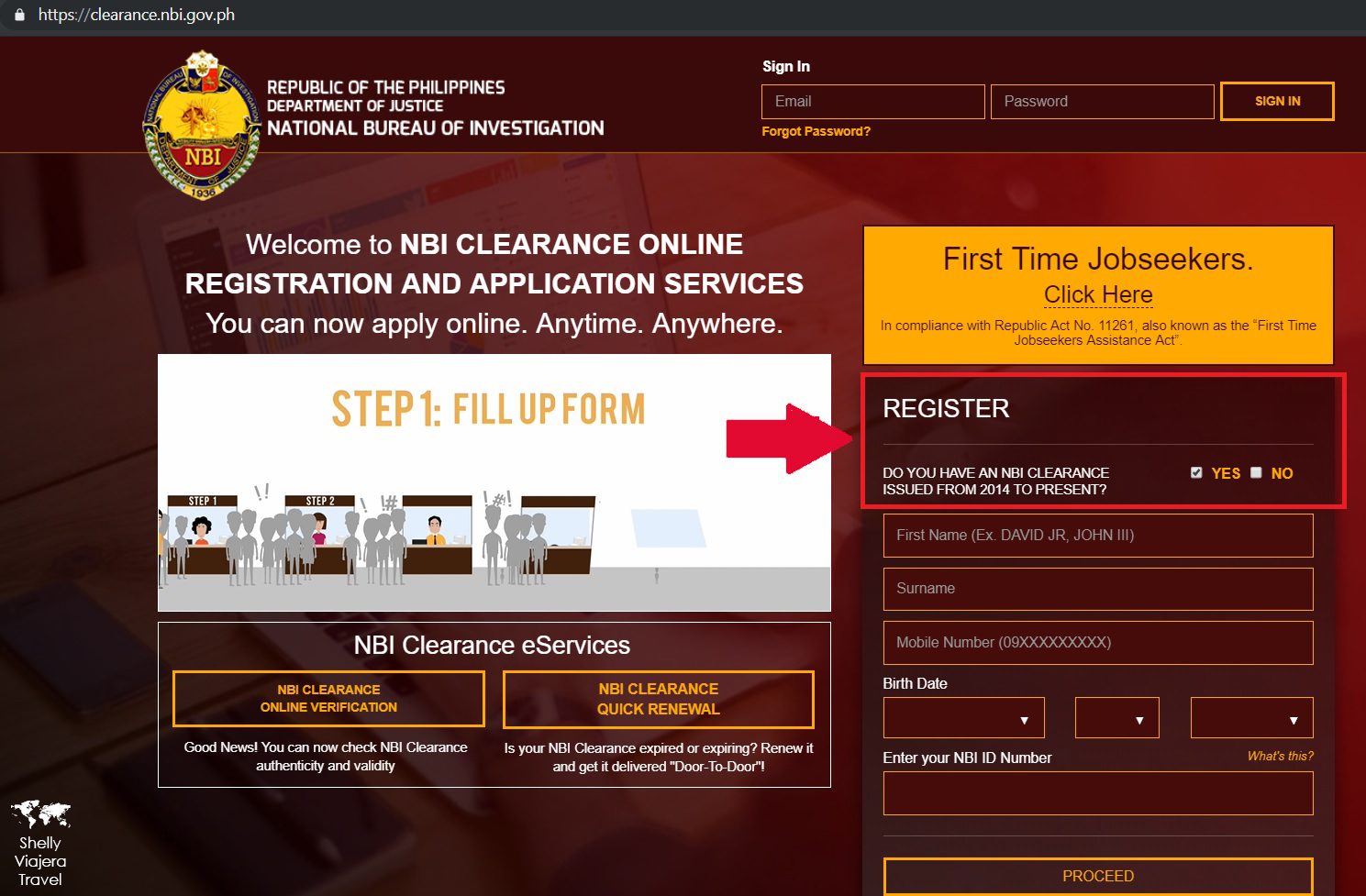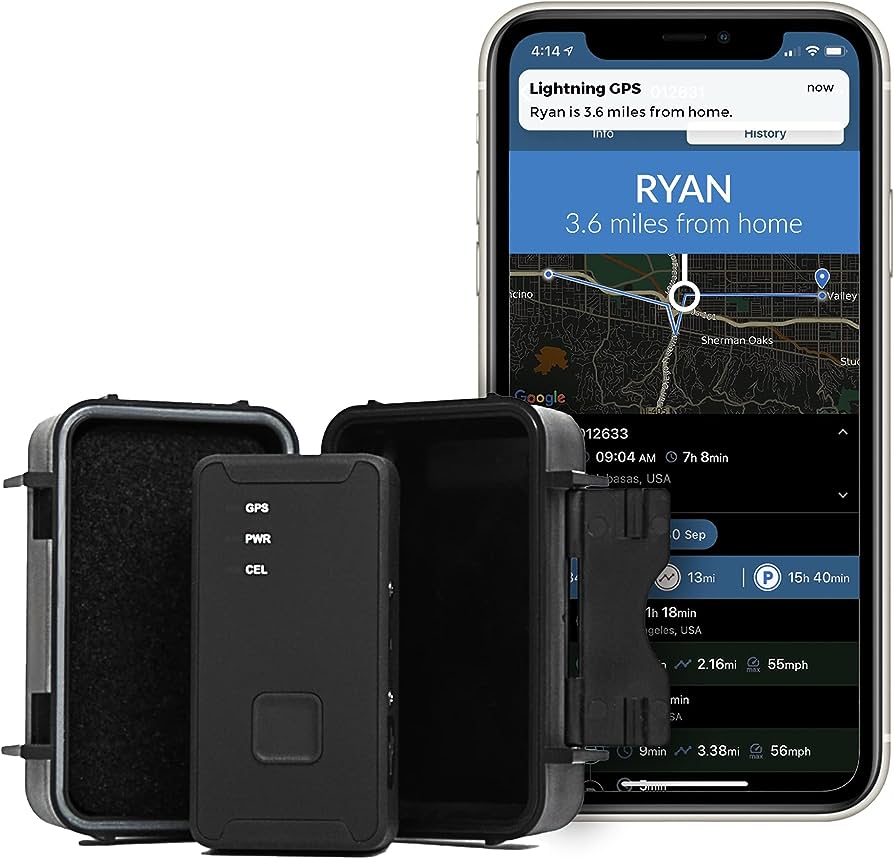To track habits, create a habit tracker chart or use a habit tracking app. By consistently logging your progress, you can monitor your habits effectively.
Tracking habits is a useful practice for personal growth and self-improvement. Whether you want to establish a new routine, break a bad habit, or maintain a healthy behavior, tracking can provide valuable insights and accountability. Fortunately, there are various methods you can use to track your habits.
One common approach is to create a habit tracker chart, where you can visually record your progress. Alternatively, you can leverage technology and utilize habit tracking apps that offer digital solutions. Regardless of the method you choose, the key lies in consistent logging of your habits to track your progress and make positive changes.
Why Tracking Habits Matters
Tracking habits is essential for personal growth and self-improvement. Learn effective methods to track your habits and achieve your goals effortlessly.
The Impact Of Habits On Our Lives
Habits have a profound influence on our lives, shaping our behaviors, actions, and outcomes. Whether they are positive or negative, habits play a significant role in our daily routines. They can either propel us forward towards success or hold us back from reaching our full potential.
Tracking habits allows us to gain invaluable insights into our behavior patterns and make positive changes, ultimately leading to personal growth and achievement. Understanding the benefits of tracking habits is essential to harness the power of habit formation effectively. Let’s explore the impact of habits on our lives in more detail:
Benefits Of Tracking Habits:
- Self-awareness: Habit tracking enables us to become more self-aware by shining a light on our daily routines and behaviors. It provides us with a clear picture of what we are consistently doing or not doing and helps us identify patterns that may be enhancing or hindering our progress.
- Goal alignment: By tracking habits, we can align our actions with our goals. This process allows us to evaluate whether our current habits are contributing to our desired outcomes or if adjustments need to be made. Aligning our habits with our goals ensures that we are consistently working towards achieving what truly matters to us.
- Accountability: Habit tracking promotes accountability by holding us responsible for our actions. When we document our habits, it becomes harder to ignore or dismiss the choices we make. It acts as a constant reminder to stay committed to the habits we want to develop and holds us accountable for staying on track.
- Motivation and progress tracking: Tracking habits provides a tangible way to measure progress and celebrate achievements. Seeing our progress visually can be incredibly motivating, reinforcing the positive habits we are trying to cultivate. It allows us to recognize our efforts and provides a sense of accomplishment, propelling us forward with renewed vigor.
- Identifying areas for improvement: Habit tracking allows us to identify areas of our lives where we can improve. By analyzing our patterns and behaviors, we can pinpoint habits that may be holding us back or contributing to negative outcomes. This awareness creates opportunities for personal growth and the development of better habits to replace the ones that no longer serve us.
- Building new habits: Tracking habits is an effective strategy for building new, positive habits. By monitoring our progress and consistently engaging in these habits, we foster a sense of discipline and dedication. It helps us establish a routine and reinforces the behaviors we wish to incorporate into our daily lives.
Tracking habits matters because it empowers us to be the architects of our own lives. It enables us to gain insight, make positive changes, and ultimately transform our behavior patterns for the better. By understanding the impact of habits on our lives and embracing the benefits of habit tracking, we can unlock our full potential and create a life that aligns with our aspirations.
So, let’s dive into the practical aspects of habit tracking and discover effective techniques to monitor and cultivate our desired habits.
Getting Started With Habit Tracking
Start tracking your habits with these simple steps. Learn how to easily track and monitor your daily routines for a more productive and balanced life.
Setting Clear Goals For Habit Tracking:
- Before you begin habit tracking, it’s essential to set clear goals to guide your efforts. Goals will help you stay focused and motivated throughout the process. Here are some tips for setting clear goals:
- Reflect on what you hope to achieve through habit tracking.
- Specify the habits you want to track and improve.
- Set measurable and achievable targets for each habit.
- Define the timeframe for tracking your habits.
- Consider the potential benefits of accomplishing your goals.
Choosing The Right Habit Tracking Method:
- With numerous habit tracking methods available, finding the right one for you can make a significant difference in your success. Here are a few popular methods to consider:
- Bullet Journal: Use a customizable journal to create habit trackers and record your progress.
- Habit Tracker Apps: Utilize mobile apps specifically designed for habit tracking, offering convenience and flexibility.
- Habit Streaks: Track your habit streaks visually with calendars or chains—ideal for those motivated by visual representations.
- Spreadsheet Trackers: Create your own digital tracker using spreadsheets, allowing for customization and detailed analysis.
- Habit Tracking Planners: Opt for pre-designed planners that provide habit tracking layouts and goal-setting features.
Remember, the most effective method is the one that aligns with your preferences and lifestyle. Experiment with different approaches until you find the perfect fit for your habit tracking journey.
5 Effective Habit Tracking Techniques
Discover effective techniques for tracking your habits and staying on top of your goals. From using habit tracking apps to creating visual charts, these strategies will help you stay motivated and accountable in your habit tracking journey.
Habit Tracking Apps: How To Choose The Best One
- There are numerous habit tracking apps available, making it overwhelming to choose the best one. Here are some tips to help you make the right choice:
- Look for apps that have a user-friendly interface and intuitive design.
- Consider the features offered by the app, such as goal setting, reminders, progress tracking, and customization options.
- Read reviews and ratings from other users to get an idea of the app’s effectiveness and reliability.
- Take into account any additional costs or subscription fees associated with the app.
- Test out a few different apps before committing to one, as what works for someone else may not work for you.
Habit Tracking Journals: How To Maintain A Habit Journal
- Habit tracking journals provide a tangible way to track your habits and monitor your progress. Here’s how to make the most of a habit journal:
- Choose a journal that suits your preferences, whether it’s a traditional notebook or a specially designed habit tracker.
- Write down your habits, along with the specific actions or targets related to each habit.
- Set a regular time to update your habit journal, such as each morning or evening.
- Use symbols or colors to denote whether you successfully completed a habit or encountered any challenges.
- Reflect on your progress periodically, noting any patterns or areas for improvement.
Habit Tracking Spreadsheets: How To Create And Use A Habit Tracker
- Habit tracking spreadsheets offer a versatile and customizable way to monitor your habits. Here’s a step-by-step guide to creating and using a habit tracker spreadsheet:
- Decide on the habits you want to track and create a column for each habit.
- Assign a clear and measurable goal or target for each habit, such as a specific number of repetitions or minutes.
- Use conditional formatting to visually highlight your progress or completion of each habit.
- Regularly update the spreadsheet, either daily or weekly, and record your progress for each habit.
- Analyze the data over time to identify trends, patterns, and areas where you can improve.
Habit Tracking Bullet Journals: Combining Habit Tracking With Creative Expression
- Bullet journals provide a creative and flexible way to track your habits. Here’s how you can incorporate habit tracking into your bullet journal:
- Create a dedicated page or spread for habit tracking, with each habit assigned its own section or tracker.
- Use symbols or icons to represent different habit-related actions or outcomes.
- Experiment with various layouts, such as habit trackers in the form of habit wheels, bar graphs, or monthly grids.
- Employ different colors, hand-lettering, or doodles to make your habit tracking pages visually appealing.
- Regularly update and review your habit trackers, adjusting them as necessary to align with your goals and progress.
Habit Tracking Devices: Utilizing Technology To Track Habits
- Technology can be a powerful tool for habit tracking. Here’s how you can leverage habit tracking devices to monitor your habits:
- Choose a habit tracking device that aligns with your needs and preferences, such as a fitness tracker, smartwatch, or specialized habit tracker.
- Utilize the features and capabilities of the device, such as activity monitoring, goal setting, reminders, and progress tracking.
- Sync your habit tracking device with a compatible app or software for comprehensive data analysis and insights.
- Regularly check your habit tracking device for updates, reminders, and notifications to stay on track with your habits.
- Leverage the data and feedback provided by the device to make informed decisions and adjustments to your habits.

Credit: littlecoffeefox.com
Tracking Habits For Personal Development
Tracking habits for personal development is essential for self-improvement. Learn effective strategies and techniques to track your habits and achieve your goals effortlessly. Discover how to monitor your progress and make positive changes for a more fulfilling life.
Tracking habits is a powerful tool for personal development. By monitoring your behaviors and actions, you can gain valuable insights into your daily routines and make positive adjustments for growth. Whether you want to break bad habits or establish new ones, tracking your progress can help you stay accountable and motivated.
In this section, we will explore how to create a habit tracking plan, identify habits to track for personal growth, and track progress while identifying patterns.
Creating A Habit Tracking Plan
To effectively track your habits, it’s essential to have a well-rounded plan in place. Consider following these steps:
- Define your goals: Determine the habits you want to track and the specific outcomes you hope to achieve.
- Choose a tracking method: Decide on a method that suits your preferences and lifestyle. Options include paper journals, habit tracking apps, or even creating a habit tracker in a spreadsheet.
- Set achievable targets: Start with small, attainable goals to build momentum. Gradually increase the difficulty and frequency of your habits over time.
- Establish accountability: Share your tracking plan with someone you trust or join a supportive community to hold yourself accountable for sticking to your habits.
Identifying Habits To Track For Personal Growth
When selecting habits for personal growth tracking, it’s crucial to focus on areas that align with your aspirations and values. Here are some habits to consider:
- Daily meditation: Cultivate mindfulness and reduce stress by incorporating a daily meditation practice.
- Regular exercise: Improve your physical and mental health by tracking your exercise routine, whether it’s going to the gym, practicing yoga, or simply taking a walk.
- Reading: Make reading a daily habit to expand your knowledge, explore new ideas, and broaden your horizons.
- Journaling: Develop self-reflection and introspection by committing to a daily journaling habit.
- Healthy eating: Formulate a habit of mindful eating, consuming nutritious meals, and staying hydrated.
Tracking Progress And Identifying Patterns
Tracking your habits is not just about monitoring your actions; it’s about analyzing the data to identify patterns and make informed decisions. Here are a few tips for effective progress tracking:
- Consistency is key: Stay consistent in tracking your habits to gather reliable data for analysis.
- Record relevant metrics: Note down any quantifiable aspects related to your habits, such as duration, frequency, or specific milestones.
- Review and analyze: Regularly review your tracking data and look for patterns or trends. Identify what triggers certain habits and uncover potential obstacles.
- Adjust and learn: Based on your analysis, modify your habits and routines accordingly. Experiment with different approaches until you find what works best for you.
- Celebrate milestones: Celebrate your achievements and milestones as you progress on your personal development journey. It will keep you motivated and encourage further growth.
Remember, habit tracking is a process of continuous improvement. Be patient with yourself, stay committed, and embrace the power of habit tracking for personal development.
Overcoming Common Challenges
Discover effective strategies for tracking your habits and overcoming common challenges. Learn how to stay motivated, monitor progress, and make lasting changes to improve your daily routines.
Staying Motivated While Tracking Habits
Maintaining long-term motivation is crucial for successful habit tracking. Here are some methods to stay motivated:
- Set clear goals: Clearly define what you want to achieve with habit tracking. Whether it’s improving your health, productivity, or overall well-being, specific goals will keep you motivated.
- Track progress: Regularly monitor your progress to see how far you’ve come. Seeing positive changes over time can be highly motivating.
- Reward yourself: Treat yourself when you reach milestones or make progress. It could be a small indulgence or something meaningful to you.
- Find accountability: Share your habit tracking journey with a friend, partner, or online community. Having someone to hold you accountable can boost motivation.
- Visual reminders: Use visual cues like sticky notes or motivational posters to reinforce your commitment to habit tracking.
- Break it down: Rather than focusing on the end goal, break the habit into smaller, manageable tasks. Celebrate each little step towards your goal.
- Mix it up: Avoid boredom by trying different habit tracking methods, tools, or apps. Experimenting with new approaches can keep motivation levels high.
Dealing With Setbacks And Failures
Setbacks and failures are a natural part of habit tracking. Here’s how to navigate them:
- Embrace self-compassion: Instead of being overly critical, show yourself kindness and understanding when facing setbacks and failures.
- Learn from mistakes: Analyze what went wrong, identify triggers, and understand the factors that led to the setback. Use this knowledge to adjust your approach.
- Recommit to your goals: After a setback, reevaluate your commitment to the habit and remind yourself why you started in the first place. It’s okay to readjust your goals if needed.
- Focus on progress, not perfection: Recognize that progress is not always linear. Even small steps forward count, so celebrate any progress made rather than dwelling on failures.
- Seek support: Reach out to your support system when facing setbacks. Discussing challenges with others can provide fresh perspectives and help renew motivation.
- Adjust your strategy: If a particular approach is not working, don’t be afraid to switch things up. Experiment with new techniques or modify your habit tracking method.
Maintaining Consistency In Habit Tracking
Consistency is key to successful habit tracking. Consider the following tips to stay consistent:
- Create a routine: Incorporate habit tracking into your daily routine and make it a non-negotiable part of your day.
- Set reminders: Use alarms, calendar notifications, or habit tracking apps to remind yourself to engage in the habit consistently.
- Start small: Begin with manageable habits and gradually increase the difficulty or intensity over time. Starting with overly ambitious goals can lead to burnout or inconsistency.
- Track progress in real-time: Record your habit tracking progress immediately after completing the habit. Waiting too long may lead to forgetfulness and inconsistency.
- Find an accountability partner: Partner with someone who shares similar habit goals. Regular check-ins and mutual support can help maintain consistency.
- Celebrate milestones: Celebrate reaching milestones or maintaining consistent habit tracking for a certain period. Rewarding yourself periodically can enhance motivation and consistency.
- Stay adaptable: Life can be unpredictable, so be open to modifying your habit tracking routine when necessary. Accept that there may be occasional disruptions and focus on getting back on track as soon as possible.
Habit Tracking Tips And Strategies
Looking to track your habits? Check out these effective tips and strategies to help you stay on top of your goals and build positive routines. Whether it’s using habit tracking apps or creating a habit tracker journal, these methods will keep you accountable and motivated on your habit tracking journey.
Maximizing The Effectiveness Of Habit Tracking:
- Prioritize consistency: Make sure to set realistic and achievable goals for habit tracking. Consistency is key in establishing and maintaining habits.
- Choose a method that works for you: Whether it’s using a habit tracking app, a pen and paper, or a habit tracker template, find a method that aligns with your preference and makes habit tracking easy and accessible for you.
- Be specific about your habits: Clearly define the habits you want to track and break them down into actionable steps. This will help you stay focused and measure your progress effectively.
- Set reminders and notifications: Use alarms, reminders, or notifications to prompt you to track your habits at specific times or intervals throughout the day. This will serve as a gentle nudge and help you stay on track.
- Take advantage of habit streaks: One of the benefits of habit tracking is seeing your streaks grow. Strive to maintain long streaks because it can increase motivation and reinforce positive habits.
Rewarding Yourself For Achieving Milestones:
- Celebrate small wins: Recognize and reward yourself for achieving milestones, especially when you’ve consistently tracked a habit for a certain period of time. Treat yourself with something you enjoy or indulge in a small reward to acknowledge your progress.
- Create a reward system: Establish a system where reaching certain milestones unlocks rewards. For example, every 30 days of consistent habit tracking could warrant a bigger reward, while smaller milestones may trigger smaller treats.
- Make rewards meaningful: Ensure that the rewards you choose are aligned with your values and goals. They can be anything from a relaxing day at the spa to investing in something that brings you joy or helps further your personal growth.
Adjusting And Evolving Your Habit Tracking Routine:
- Regularly review and evaluate: Reflect on your habit tracking routine and assess its effectiveness. Identify any obstacles or challenges you face and make necessary adjustments to overcome them. Be open to experimenting with different habit tracking methods or strategies.
- Be flexible with your approach: Recognize that habits can change, and it’s important to adapt your habit tracking routine accordingly. Allow yourself the freedom to modify or replace habits as needed, depending on your priorities and goals.
- Seek support and accountability: Share your habit tracking journey with a friend, family member, or an online community. Having someone to hold you accountable can provide encouragement, motivation, and valuable insights.
- Track and analyze progress: Utilize progress reports and data provided by habit tracking apps or tools. Analyzing your patterns and progress can help identify areas for improvement and determine if any tweaks are necessary in your routine.
Remember, habit tracking is a powerful tool for personal growth and self-improvement. By maximizing its effectiveness, rewarding yourself along the way, and adapting as needed, you can establish and maintain positive habits that contribute to your overall well-being and success.
The Science Behind Habit Tracking
Unlock the power of habit tracking and improve your daily routines with scientific precision. Learn how to track habits effectively and achieve your goals with ease.
Understanding the psychology of habit formation is crucial when it comes to effectively tracking habits. By delving into the science behind habit tracking, we can gain valuable insights into how it influences behavior change. Let’s explore this topic further, discovering how habit tracking can be a powerful tool in transforming our lives.
How Habit Tracking Influences Behavior Change:
- Consistency: Habit tracking encourages consistency by providing a visual representation of our progress. Seeing our efforts recorded on a consistent basis can motivate us to keep going and maintain our newly formed habits.
- Awareness: Tracking our habits increases our awareness of the actions we take on a regular basis. This heightened awareness allows us to identify patterns, triggers, and potential obstacles that may hinder our progress.
- Accountability: Habit tracking holds us accountable for our actions. When we have a visual record of our habits, we feel a sense of responsibility to uphold our commitments and stay true to our goals.
- Feedback loop: Habit tracking establishes a feedback loop that reinforces behavior change. As we track our habits, we receive immediate feedback on our progress, which can be incredibly motivating and facilitate further positive changes.
- Goal-setting: Habit tracking enables us to set clear goals and track our progress towards achieving them. By breaking down our desired habits into smaller, manageable tasks, we can track our progress and celebrate milestones along the way.
- Positive reinforcement: Seeing our progress through habit tracking provides positive reinforcement. Celebrating small victories and acknowledging our efforts boosts our motivation and confidence, making it more likely for us to continue our habit-forming journey.
Understanding the science behind habit tracking allows us to leverage this powerful technique to our advantage. By embracing consistency, increasing awareness, fostering accountability, utilizing the feedback loop, setting clear goals, and embracing positive reinforcement, we can effectively track our habits and drive meaningful behavior change in our lives.
So, let’s start tracking those habits and unlock the potential for personal growth and transformation.
Habit Tracking For Better Well-Being
Learn effective habit tracking techniques to improve your overall well-being. Discover how to easily track your habits for a healthier lifestyle.
Habit tracking can be a powerful tool for improving your overall well-being, both physically and mentally. By monitoring your habits and making positive changes, you can optimize your lifestyle and achieve a higher level of wellness. Let’s explore how habit tracking can benefit your physical health and enhance your mental well-being.
Tracking Habits For Improved Physical Health
- Consistent exercise: Regular physical activity contributes to improved cardiovascular health, increased strength and flexibility, and a boosted immune system.
- Healthy eating habits: Tracking your food intake helps you stay accountable and make mindful choices. Consider tracking your daily servings of fruits and vegetables, water intake, and portion sizes.
- Sufficient hydration: Keeping track of your water consumption ensures proper hydration, which can have a positive impact on digestion, skin health, and overall bodily functions.
- Quality sleep patterns: Monitoring your sleep habits helps you identify any irregularities or areas for improvement. Tracking your sleep duration, bedtime routine, and sleep quality can help you optimize your rest.
- Mindful breathing and relaxation techniques: Incorporating deep breathing exercises and relaxation techniques into your daily routine promotes stress reduction, better sleep, and improved overall physical well-being.
Tracking Habits For Enhanced Mental Well-Being
- Daily gratitude practice: Taking note of things you are grateful for each day fosters a positive mindset and helps shift your focus toward the positive aspects of life.
- Mindfulness and meditation: Consistently practicing mindfulness and meditation can calm your mind, reduce stress, improve focus, and enhance overall mental well-being.
- Time for self-care: Tracking your self-care activities such as taking breaks, engaging in hobbies, and practicing self-reflection helps ensure you prioritize your mental health and emotional well-being.
- Social connection: Keeping track of your social interactions and making an effort to connect with loved ones regularly can contribute to improved mental well-being and a sense of belonging.
- Setting boundaries: Tracking your ability to set and maintain boundaries in different aspects of your life is essential for protecting your mental well-being and reducing stress.
By tracking these habits, you can gain valuable insights into your overall well-being, pinpoint areas for improvement, and celebrate your progress along the way. Remember, well-being is a lifelong journey, and habit tracking can be a helpful tool to support you on this path.
Habit Tracking Success Stories
Discover inspiring habit tracking success stories and learn effective strategies on how to track habits for a successful lifestyle. Gain insights from real-life examples and implement practical techniques to achieve your goals.
Habit tracking has proven to be an effective tool for individuals seeking to make positive changes in their lives. By monitoring their habits and progress, people are able to stay accountable and motivated towards achieving their goals. In this section, we will explore some real-life success stories of individuals who have achieved remarkable milestones through habit tracking.
Real-Life Examples Of Individuals Who Achieved Their Goals Through Habit Tracking:
- Sarah: Sarah had a goal of leading a healthier lifestyle. By tracking her daily food intake and exercise routines, she was able to identify patterns in her behaviors and make necessary adjustments. This habit tracking allowed her to lose 20 pounds within six months and maintain her weight by developing sustainable healthy habits.
- John: John wanted to become more productive and organized in his work. Through habit tracking, he began logging his daily tasks and prioritizing them based on importance. This method helped him stay focused, complete his assignments on time, and achieve his targets more efficiently. As a result, not only did he improve his performance at work, but he also experienced reduced stress levels and gained a better work-life balance.
- Emily: Emily struggled with procrastination and wanted to develop better time management skills. By tracking her daily activities and identifying time-wasting habits, she was able to implement strategies to optimize her schedule. This led to increased productivity, improved concentration, and a significant reduction in her procrastination tendencies. Emily now feels more in control of her time and is able to accomplish her tasks with ease.
- David: David aimed to develop a reading habit to expand his knowledge and stimulate his mind. Through habit tracking, he set a daily reading goal and tracked his progress. By regularly allocating time for reading, he successfully completed several books within a year. David now finds reading to be an enjoyable habit that has contributed to his personal growth and enriched his life.
- Megan: Megan wanted to save money for a dream vacation. Through habit tracking, she started monitoring her spending habits and identified areas where she could cut back. By setting a budget and tracking her expenses, she was able to save a significant amount of money within a year. Megan achieved her savings goal and was able to embark on her dream vacation feeling financially secure.
Seeing real-life examples of individuals who have achieved their goals through habit tracking can inspire and motivate others to embark on their own habit tracking journeys. Whether it’s to improve health, increase productivity, manage time effectively, or achieve personal aspirations, habit tracking has proven to be a powerful tool for transformative change.
By adopting this practice and staying consistent, anyone can unlock their full potential and accomplish their desired goals.
Frequently Asked Questions For How To Track Habits
What Is The Best Way To Track A Habit?
The best way to track a habit is by using a habit tracker app or journal.
How Do I Track My Daily Routine?
To track your daily routine, use a planner or a scheduling app, noting your tasks and activities each day.
How Do I Track My Bad Habits?
To track your bad habits, follow these steps: 1. Identify the habits you want to track. 2. Use a habit tracker app or write them down on paper. 3. Record each time you engage in the bad habit. 4. Review your progress regularly to see if you’re improving.
Do Habit Trackers Really Work?
Yes, habit trackers can be effective tools for tracking and improving habits.
Conclusion
Tracking habits is an effective way to improve productivity and achieve personal goals. By monitoring our behaviors, we gain valuable insights into what is working and what needs adjustment. With the help of various habit tracking tools and techniques, individuals can create a roadmap for success and hold themselves accountable for their actions.
Whether it’s using a habit tracker app, a bullet journal, or simply setting reminders, finding the method that works best for you is essential. Additionally, incorporating positive reinforcement strategies can further motivate us to stick to our habits and maintain consistency.
Remember, habits are not built overnight; they require time and effort. Embrace the process and stay committed to your goals. By implementing habit tracking into our daily lives, we can pave the way for personal growth and long-term success. Start today and witness the positive impact it can have on your life.
- What Is the 11 Hour Limit: A Comprehensive Guide - June 7, 2024
- What Happens if You Drive on a Suspended License in Virginia - June 7, 2024
- Wilcox Justice Court Overview: Online Services & Legal Proceedings - June 6, 2024




